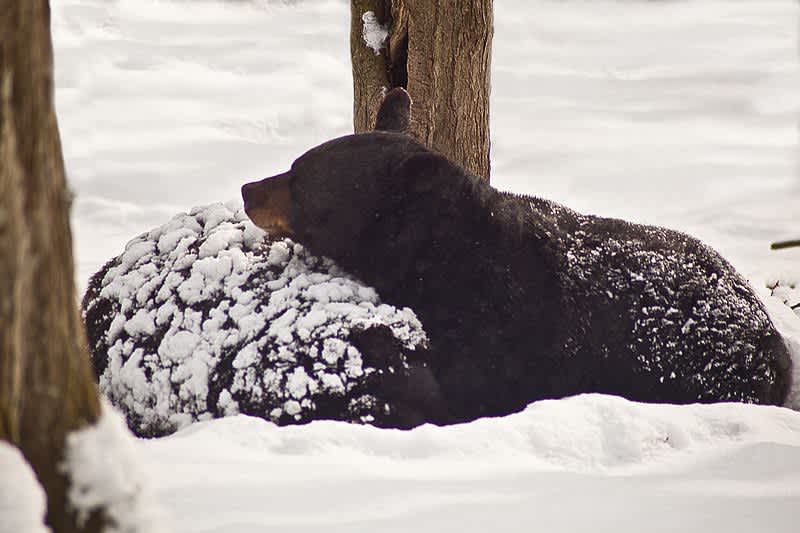Southwest Drought Causes Bears to Break Hibernation Early
OutdoorHub Reporters 01.23.14

Residents of California and Nevada may be surprised to see more black bears walking about, a result of drought conditions across the region. While other states are seeing record low temperatures and high snowfall, parts of the Southwest are experiencing a surprisingly warm and dry winter. Experts are finding some black bears already awake and scrounging for food.
“In this weather, you’re going to see more of them,” Chris Healy, a spokesperson with the Nevada Department of Wildlife, told The San Francisco Chronicle. “They’re totally content to hibernate, but if the food’s available, they’ll get up and eat.”
This kind of behavior is not unusual in some areas where bears have been hibernating less over recent years. It seems to be the case in Florida that black bears, which enter lighter hibernation periods than animals like chipmunks or squirrels, are skipping the phase entirely. Bears in colder regions generally hibernate longer, but bears in warmer climates often cut theirs short. Since the goal of hibernating is to preserve energy in an otherwise stressful winter, bears are now waking earlier to take advantage of warmer weather or potential sources of food. For residents accustomed to a bear-free winter, this can be very disconcerting.
In addition to sightings near homes and public places, one bear also wandered onto the Heavenly Mountain Resort in South Lake Tahoe and gave skiers a scare. Officials are reminding those living near the Sierra foothills to properly secure trash, which bears will scavenge for food.
Drought also means dry forests and less food for wildlife, which inevitably leads to animals ranging closer to human habitation. Bears coming closer to civilization means more conflicts with humans, which worries animal rights organizations like the BEAR League.
“This year is the worst,” BEAR League spokesperson Ann Bryant told CBS 13. “We have a really unusual winter going down right now.”
For many, the bear sightings are just another symptom of drought, which is quickly becoming a crisis the state has not seen since 2009.
“Among all our uncertainties, weather is one of the most basic,” said California Governor Jerry Brown. “Right now, it is imperative that we do everything possible to mitigate the effects of the drought. I have convened an Interagency Drought Task Force and declared a State of Emergency.”

